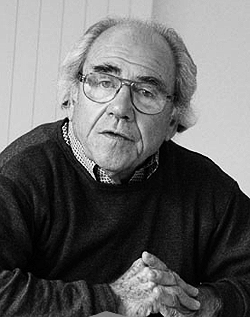In 1991, the French sociologist and philosopher Jean Baudrillard scandalized the West with three essays he published in the left-wing daily Libération, later collected in a book that took its title from the third entry in the series: The Gulf War Did Not Take Place. Baudrillard’s thesis, known to most only by the title, seemed at the time like the epitome of irresponsible postmodern theorizing—both intellectually absurd and morally abominable. Later in the same decade, he became best known for his supposed influence on the 1999 blockbuster The Matrix, in which a copy of his 1981 book, Simulacra and Simulation, makes a brief appearance. The version of his thought conveyed there was similar to what most took from his Gulf War musings: What might seem real is, in fact, illusory. But by then, this idea already seemed somewhat less ludicrous, no doubt because the rise of digital technology had already begun to call reality into question.
More than three decades after the first Gulf War and nearly two weeks into another bloody clash in the Middle East, it is possible to grasp Baudrillard’s thesis more soberly. His purpose wasn’t to deny the reality of events, but to make note of a drastic shift in the manner of their unfolding enabled by the media environment taking shape at the time. War had once been an event that occurred in the world; only later, often much later, were its facts conveyed by journalists, diarists, poets, and novelists. The rise of broadcast media altered this order. War could now be captured and publicized simultaneously with its occurrence.
More than that, Western militaries increasingly made use of sophisticated technologies of modeling and simulation to game out conflict in advance and to track and modify the deployment of high-tech weaponry. The result was that the technological and mediatic capture of war was now prior to its actual events, and shaped those events at every turn. This is what Baudrillard meant by “hyperreality”: not a Matrix-like replica of reality, but a reality interpenetrated by models of it to the extent that the two become indistinct.
Baudrillard died in 2007, on the cusp of the smartphone and social-media era, which has exacerbated the tendencies he described by distributing technologies of digital simulation far more widely. Today, wars aren’t merely spectacles to be simulated and gamed out by planners in advance and broadcast in real time by media outlets as they unfold. Now ordinary citizens across the world participate in the elaboration of the shifting, labyrinthine hall of mirrors that emerges instantaneously around a war; we furnish footage to journalists and state propagandists and, in turn, circulate, amplify, analyze, and modify images and narratives, thereby reshaping them.
